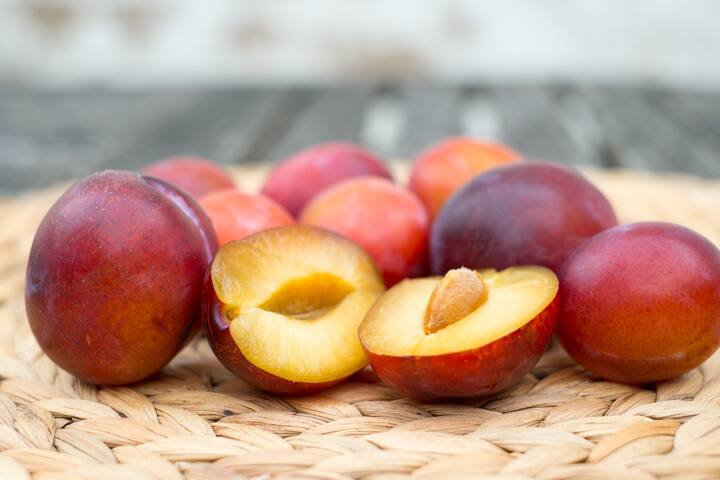
The quality of stone fruit
The quality of stone fruit
They're back: peaches, nectarines, apricots, plums and cherries. Stone fruit is the ultimate summer fruit and guarantees a unique taste experience. But guaranteeing good quality? That's easier said than done.
Short season, wide distribution
Peaches and nectarines come in countless varieties, but the season for each variety is extremely short. The harvest must take place within a few weeks. To keep the shelves in Northern Europe stocked throughout the spring and summer, many different varieties and growing locations are needed.
Nevertheless, there are always times when stone fruit is simply not available. It is therefore the only fruit category that cannot be sold all year round.
Differences in taste and preference
In addition to timing, the type of stone fruit also influences sales. There are both white-fleshed and yellow-fleshed varieties. The classic peaches and nectarines are yellow-fleshed and slightly more acidic. Newer varieties are often white-fleshed, less acidic and therefore sweeter in taste.
Consumers in the Netherlands are less familiar with these varieties. In Belgium, France and the United Kingdom, however, they are readily available on the shelves. Unknown means unloved – and that hinders the acceptance of these varieties.
Ripe, but not too ripe
The biggest challenge for retailers and suppliers is to offer peaches and nectarines at the right moment of ripeness. This is particularly difficult in the winter months and in the first weeks of the European stone fruit season, when the fruit is often still unripe. But even in the middle of summer – when Spain and Italy are in full production – the fruit can ripen too quickly.
Peaches and nectarines must be harvested at the right level of ripeness and then allowed to ripen further. This is a delicate process: if the fruit is picked too ripe, it is susceptible to damage and has a limited shelf life. If harvested too early, ripening stops and consumers are left with hard, unpalatable fruit.
In some cases, post-ripening is used to achieve the right eating ripeness, such as with stone fruit from South Africa in the winter months. However, this is still done on a relatively small scale.
Want to learn how to assess stone fruit yourself?
Would you like to have more control over the quality of peaches, nectarines and other stone fruit? In the P13 inspector module, you will learn how to objectively inspect these products for ripeness, taste, texture and visual characteristics. Practical, immediately applicable and developed for fresh produce professionals who want to make a difference.

Smart focus on quality
Retailers can boost their sales by offering fruit that is ready to eat. But be careful: fruit that is too ripe quickly becomes mushy and disappointing. A good rule of thumb is that the product should be edible within two days of purchase. Control over quality is therefore important, especially with stone fruit.
Your partner in the world of fruit and vegetables
The quality and availability of fruit and vegetables fluctuate constantly. In addition to daily tasks such as inspecting fruit and vegetables, there are new challenges to face. These include reducing packaging materials, the increasing focus on taste, the fruit and vegetable knowledge of new staff, improving specifications, optimising seasonal transitions and introducing new cultivation techniques.In this complex fruit and vegetable world, Normec Foodcare is your partner. We give you control over the quality of fresh produce. We do this by:
Monitoring quality in supermarkets
Product comparisons
Shelf life testing
Taste testing
Store inspections
Product specifications
Secondment of inspectors & quality managers
Fresh produce quality training
Our team of fruit and vegetable experts and inspectors is here for you. With many years of knowledge and experience, we know better than anyone how you, as a grower, importer or supermarket chain, can make a difference in fruit and vegetables.
Need help?
Together, we ensure better quality, more knowledge and satisfied consumers. See what we can do for you or contact us directly. Our fruit and vegetable experts are here for you.